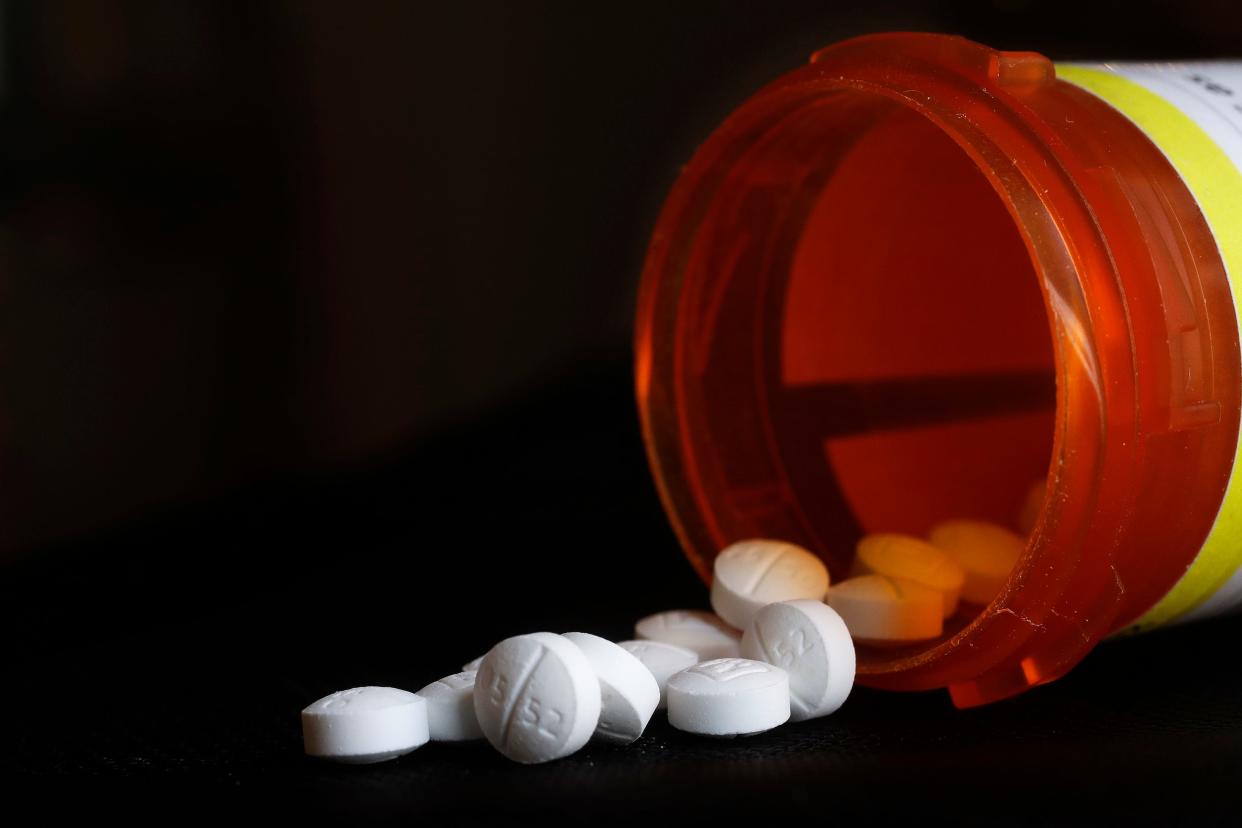How to survive the holidays and stay sober, or help loved ones do the same

In his first years of sobriety from heroin addiction, Andrew Brown recalls feeling uncomfortable at holiday gatherings. The way family members looked at him, studying his eyes to determine whether he might be high, was unnerving. It made him wonder whether his family would ever trust him.
"I think it's common for people, they go around their family and the families are apprehensive," he said. "I had some of those looks, 'Like is he really in recovery, is this real?' ''
The holiday season can be difficult for anyone. Along with the joy felt by so many, "there are multiple areas (of) heightened stress," said Andrea Rodgers, director of development at Hegira Health, a social services agency headquarted in Livonia.
But for people in recovery from addiction, the season can be especially precarious. Because faced with all the stressors of the holiday season ― financial, social, family ― people in recovery, especially those new to recovery, may seek comfort in old habits.
And that means relapse.
Mourning a previous life
There is a lot to figure out in the early stages of recovery.
"This could be the first holiday you had where you’re sober and you don’t know what to do," said Jaimie Clayton, president and CEO of Oakland Family Services. "If all of your traditions were around drinking or drugging, it’s very difficult to kind of find your place in sobriety when maybe your network is still using.
"The holidays, a lot of people talk about how traditions make them feel better. We follow what we’ve always done or what our families have done. If those are not healthy activities or memories for you, it can be a difficult time to stay sober or be sober," Clayton said.
How to cope?
"We always say that sometimes people who are in recovery literally have to grieve over their previous life because now they are creating a new life," said Varinder Kaur, director of addiction studies at University of Detroit Mercy. "They literally have to create new life where they have a new friend circle, new activities which are non-substance use activities."
More:Narcan 101: How to use it, why it works and how to get it
More:Xylazine, the newest killer street drug in Michigan: What you need to know
That means staying away from people who are in active addiction. It means finding new friends and surrounding oneself with a supportive circle. Looking for new activities. And starting new traditions, including keeping up on meetings with therapists, peer coaches and other sober support services.
Family members and loved ones can play a role, too, Clayton said.
”Listen to your person. … If someone says to you, 'It would really help me ... to not have alcohol at this party' ... Really listening to what that person who is in recovery or is trying to be in recovery needs ... knowing triggers as well. Typically, family members have often seen this path of substance misuse and can see things coming before the person themselves."
And keep Narcan on hand. Used correctly and in time, it can reverse an opioid overdose.
Finding help
As for Brown, he managed to navigate those early post-sobriety gatherings without relapsing. Now 37, he's been sober since 2007 and serves as director of events and communications at CARE of Southeastern Michigan, a social services nonprofit that provides counseling and addiction treatment. And he enjoys watching his young children enjoy the season's hubbub.
But if you or someone you care about this season is struggling in their recovery, or if they're in active addiction and need help, there are resources available.
Take a look:
Detroit Wayne Integrated Mental Health: 800-241-4949, answered 24 hours, including holidays. Wayne County residents only.
Macomb County Community Mental Health: 586-307-9100, answered 24 hours, including holidays.
Hope Not Handcuffs: answered 8 a.m. to 10 p.m. daily, including holidays. The Hope Not Handcuffs team can arrange treatment.
National Suicide and Crisis Lifeline: Call or text 988. The hotline can help with any mental health issues, including addiction.
Common Ground: 800-231-1127, answered 24 hours, including holidays.
Substance Abuse and Mental Health Services Administration: 800-662-4357. The national hotline is answered 24 hours, including holidays. 800-662-4357.
Alcoholics Anonymous: 248-541-6565, 9 a.m.-9 p.m. daily, including holidays.
Narcotics Anonymous: 248-759-8032, answered 24 hours, including holidays.
Where to get Narcan
For free Narcan by mail: nextdistro.org
Care of Southeastern Michigan's Recovery United Community Center in Fraser offers drive-up naloxone training. It also offers training for workplaces and groups. For more info: 586-552-1120.
Families Against Narcotics offers virtual and in-person Narcan training. Some of the training is open only to Macomb County residents, others are open to all Michigan residents. For more info: 586-438-8500.
Alliance of Coalitions for Healthy Communities, based in Troy, offers twice-weekly virtual Narcan training. For more info: 248-221-7101.
Detroit Wayne Integrated Health Network, based in Detroit and serving Wayne County, offers virtual Narcan training. For more info: 313-833-2500.
Narcan is also available at participating Michigan pharmacies with no prescription. It's not free. But coupons that may provide a savings are available at GoodRx.
This article originally appeared on Detroit Free Press: Helping a loved one avoid relapse and survive the holidays sober

